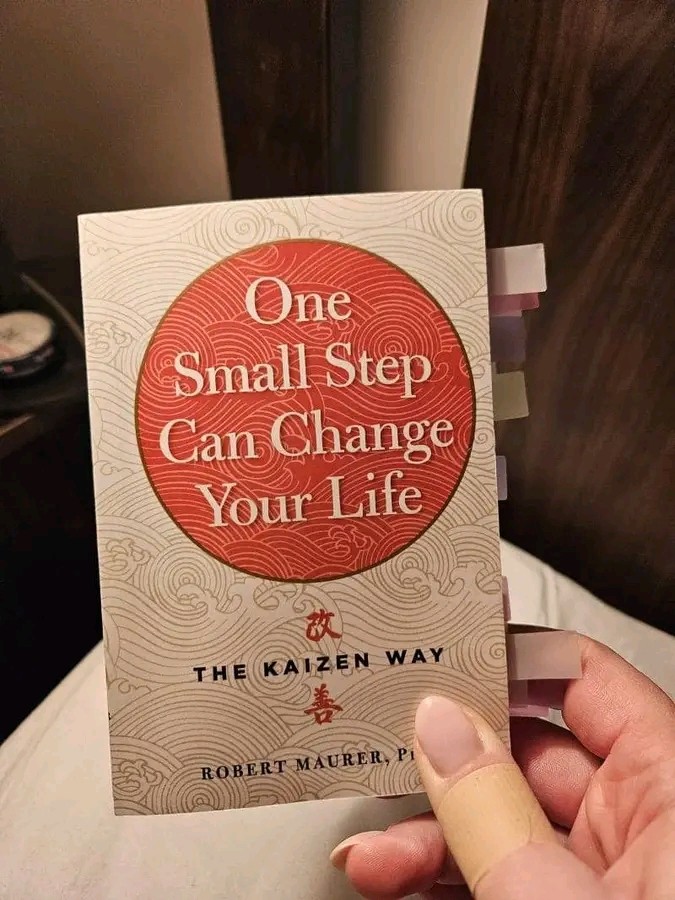"One Small Step Can Change Your Life: The Kaizen Way" by Robert Maurer is a guide that introduces the concept of Kaizen, a Japanese philosophy of continuous improvement through small, manageable steps. The book emphasizes that making significant life changes doesn't always require taking big leaps; often, it's the small, incremental changes that lead to lasting success and fulfillment.
Here are some key lessons from the book:
1. Start Small: The core principle of Kaizen is to make very small changes. Maurer argues that small steps can lead to significant changes over time without triggering fear or resistance that larger changes might cause. This approach is particularly effective because it's sustainable and doesn't overwhelm your brain's natural resistance to change.
2. Ask Small Questions: To stimulate thinking and creativity without pressure, Maurer suggests asking small, non-threatening questions. This technique can help you identify areas for improvement and brainstorm small steps you can take toward your goals, without feeling overwhelmed.
3. Think Small Thoughts: Visualization and mental practice are powerful tools for change. By imagining yourself taking small steps and achieving small wins, you can build confidence and prepare yourself for action. This practice helps create new neural pathways in your brain, making it easier to adopt new habits and behaviors.
4. Take Small Actions: Actions, no matter how small, are crucial for making progress. These small actions should be easy to implement and require minimal effort. Over time, these actions accumulate and lead to significant changes. The key is consistency and the willingness to take that tiny step every day.
5. Solve Small Problems: Instead of waiting for problems to become overwhelming, address them while they're small. This proactive approach can prevent issues from escalating and is less daunting, making it more likely that you'll take action.
6. Bestow Small Rewards: Maurer recommends acknowledging and celebrating small achievements. This reinforces positive behavior and motivates you to continue taking small steps forward. Rewards don't have to be grand; they just need to be meaningful to you.
7. Identify Small Moments: Appreciation for the small, seemingly insignificant moments in life can enhance your overall sense of well-being and satisfaction. Maurer encourages readers to be present and find joy in the ordinary, fostering a positive outlook that supports continuous improvement.
8. The Power of Small Questions for Innovation: Small questions can also spark innovation and creative problem-solving in work and personal projects. They encourage a curious mindset and open up new possibilities that might not be evident when focusing on big, overwhelming challenges.
9. Overcoming Fear with Small Steps: Fear of failure or change can paralyze action. By focusing on small, almost effortless steps, you can bypass the fear response and make progress towards your goals. This gradual approach helps build confidence and resilience.
10. Building Habits Through Small Changes: Lasting habits are formed through repetition and consistency. Small changes are more likely to stick because they're easier to integrate into your daily life without resistance. Over time, these small changes can lead to significant transformations in habits and lifestyle.
"One Small Step Can Change Your Life" offers a compassionate and practical approach to personal development. By embracing the philosophy of Kaizen, individuals can achieve their goals, improve their lives, and find greater happiness through the power of small steps. The book is a reminder that progress, no matter how small, is still progress and that change is within reach for everyone.
Book: https://amzn.to/42KZfQg
You can get the audiobook for FREE by using the same link above when you register on the Audible platform.






